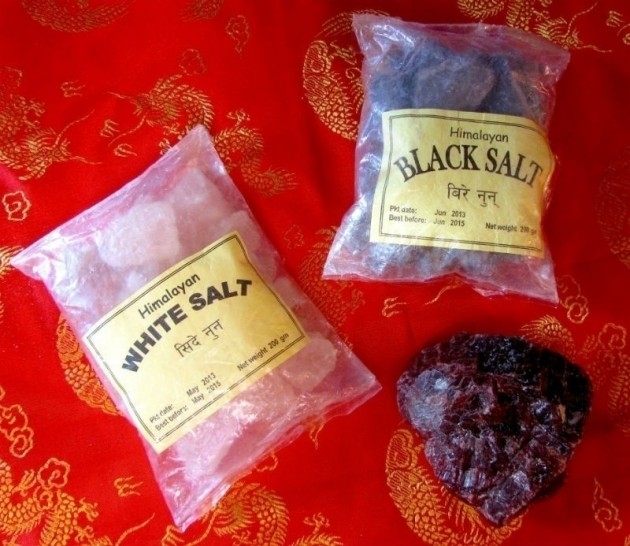Lupus Symptoms
Symptoms vary according to the severity of the illness and which organs are affected. SLE may occur very abruptly with a fever and mimic an acute infection or it may occur very slowly over months and years with only several episodes of fever and fatigue.
Most people with SLE complain of pain in various joints that mimics arthritis, or in children simulates growing pains.
In adults, there is often a history of growing pains. Over time, muscular contraction may deform the joints.
Many patients have rashes on the face or other areas, such as the neck, upper chest, and elbows. In DLE, the rash starts as red, circular, thickened areas that leave scars, most often affect the face and scalp, and may cause permanent hair loss. In SLE, there is a characteristic "butterfly-shaped" rash that occurs on the cheeks and over the bridge of the nose. Rashes in SLE patients do not scar and do not cause permanent hair loss.
Ulcers on mucous membranes such as the mouth and nose are common. Rashes and swelling of the hands and fingers may occur. Sensitivity to light (photophobia) occurs in 40 percent of people with SLE. Other problems may
be kidney disorders, repetitive episodes of pleurisy (inflammation of lining of the lungs), pericarditis (inflammation
of the membrane surround the heart), iron deficiency, anemia, and pulmonary hypertension (high blood pressure). Swelling of several or more lymph nodes is common especially in children.
SLE is classified as mild if the symptoms are mainly fever, joint pain, rash, headaches, pleurisy, and pericarditis.
It is considered severe if it is associated with life-threatening diseases. Mild SLE may respond well to natural therapies. Aspirin may be useful but in high dosages in people with SLE may cause liver toxicity. Antimalarials (used to treat malaria) may help in conditions where joint and rash symptoms are predominant.
Severe SLE requires immediate corticosteroid therapy.
Occurrence
Occurs mostly in young women (90 percent of cases) and in young children.
Consider
Rule out food allergies, rheumatoid arthritis, other connective tissue diseases, parasites, candidiasis, bowel problems, and digestive enzyme deficiencies that may create symptoms that mimic SLE, or worsen SLE. Rule out migraines, epilepsy, and psychoses.
Special Notes
SLE is often chronic, with periods of improvement and relapse over many years. Sometimes there are years of remission in between periods of symptoms. Blood tests for antinuclear antibodies (ANA) and sometimes skin biopsies are diagnostic for this condition.
According to the American Rheumatoid Association there must be four of the following eight symptoms present
for lupus to be diagnosed: ANA antibodies in the blood, low white blood cell or platelet count or hemolytic anemia, joint pain in the number of joints (arthritis), butterfly rash on cheeks, abnormal cells in the urine, light sensitivity, mouth sores, seizure or psychosis.
Some drugs give a false positive test (looks like SLE): hydralazine, procainamide, and beta blockers. Sometimes these drugs produce a lupus-like condition that goes away when the drug is stopped.
Birth control pills may cause flare-ups of lupus. Treatments are aimed at decreasing symptoms. Allopathic
medicine does not consider there to be a cure for lupus, but naturally oriented physicians report "cures" of lupus
by eliminating causes and treating the body as a whole.
Diet
Whole foods diet (FirstLine Therapy® Diet). Avoid overeating (more frequent smaller meals is suggested), limit cow's milk and beef products, increase vegetables (especially green, yellow, and orange), and consume fish several times a week. Avoid alfalfa sprouts or tablets which contain L-canavanine sulfate, a substance that may aggravate lupus.
Assess and Treat for Food and Chemical Allergies
One hundred percent of all SLE patients have food allergies and improve with appropriate identification and
treatment.
Suggested Nutritional Supplementation
Core Nutritional Support Protocol
- UltraInflamX® Plus 360 - 2 scoops twice daily
Multi-mechanistic support with key nutrients, phytonutrients, and selective kinase response modulators (SKRMs) to address underlying inflammation.
- Follow either the Modified Elimination Diet or the Anti-Inflammatory Diet
- LactoFlamXTM - 1 capsule daily
LactoFlamX features L. plantarum 299V - a strain-identified probiotic that has been specifically shown to support the integrity and healthy function of the muscosal lining.
- EPA-DHA 6:1TM Enteric Coated - 2 softgels three times daily.
EPA-DHA 6:1 Enteric Coated omega 3 fatty acids providing a ratio appropriate for patients with chronic inflammatory conditions.
|
Vitamin D3 with Isoflavones. Iso D3 is designed to support optimal metabolism of vitamin D to its
active form.
If there is a soy sensitivity use:
|
High potency vitamin D3 - the most bioactive form of supplemental vitamin D.
Additional Nutritional Support Considerations
Body composition management
- High BMI - Introduce lower calorie Modified Elimination or Anti-inflammatory Diet
- Low BMI - Introduce higher calorie Modified Elimination or Anti-inflammatory Diet and measure hsCRP
- If hsCRP is greater than 1.5mg/l then increase Kaprex® AI to 2 tablets, three times daily
Insulin resistance and dysglycemia
- MetaglycemXTM - 2 tablets, three times daily
Sex hormone dysregulation
- EstroFactors® - 3 tablets daily.
- Meta I3C® - 2 capsules daily.
- ActiFolate® - 1 tablet, three times daily.
Hepatic detoxification imbalances/Drug or Chemical toxicity
- AdvaClear® - 2 capsules twice daily.
Gastrointestinal Restoration (4R Program)
- EndefenTM - 1 tsp, three times daily.
- UltraFlora I.B.TM - 1-2 capsules daily.
- Glutagenics® - 2 tsp, three times daily.
TH1 dominance or chronic allergy
- EstroFactors® or Testralin® - 3 tablets daily.
Impaired biotransformation or hepatic detoxification imbalances
- AdvaClear® - 2 capsules twice daily.
- Silymarin 80 - 3 tablets daily.
Oxidative stress
- Oxygenics® - 2-6 tablets daily.
- Celapro® - 2 softgels daily.
- MetaLipoate® 300 - 1 tablet twice daily.
Vitamin A insufficiency
- Ultra Pure Cod Liver OilTM - 1 tsp, three times daily
Thyroid Support
- Thyrosol® - 1-3 tablets twice daily






